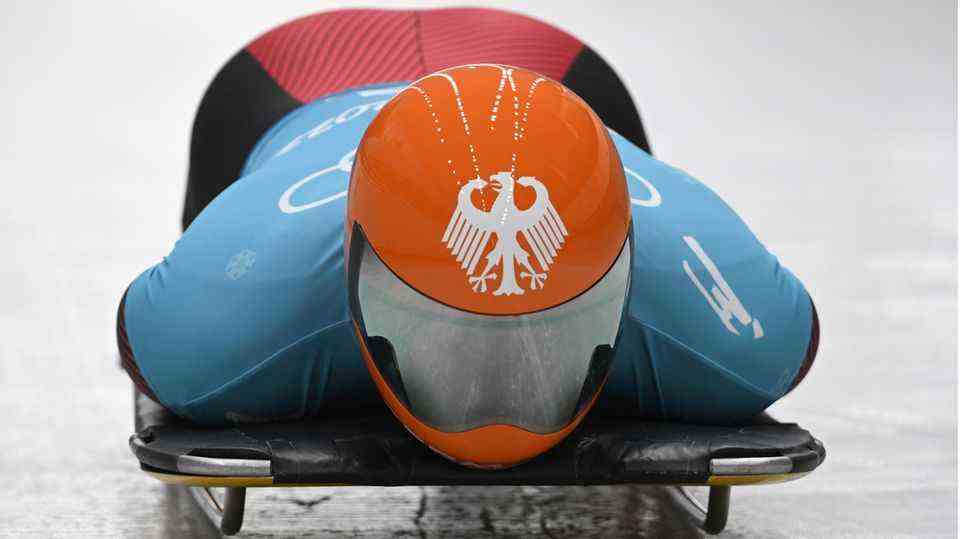Olympics 2022
Figure skaters don’t get their medals for the time being – rumors of doping in the case of a young Russian star
Doping before the Olympics? According to media reports, the banned substance trimetazidine was detected in the Russian figure skater Kamila Valiewa even before the games in Beijing.
© Matthew Stockman / Getty Images
Actually, the winners of the figure skating team competition should be honored on Tuesday at the Winter Games in Beijing. But the medal award was postponed without explanation. However, the IOC does not want to confirm doping rumors.
In the whirl of the open medal award in the Olympic team competition for figure skaters, the International Olympic Committee has described reports of a doping case as “speculation”. “It would be inappropriate for us to comment on an ongoing legal process,” said IOC spokesman Mark Adams on Thursday. The award ceremony planned for Tuesday in the competition had previously been postponed without further explanation.
Russian figure skating star Valeva under suspicion
According to media reports, the reason could be a possible positive doping test by one of the participants before the Winter Games in Beijing. “We will not comment on all possible speculation,” Adams said. He generally pointed out that the IOC had transferred all doping tests and the decision on possible sanctions to the International Test Agency (Ita) and the International Court of Arbitration for Sport (Cas).
The athletes from Russia won the team competition clearly ahead of the USA and Japan. Russian officials have said they have not received any official information about the involvement of one of their team members.
the “Sportschau” reports Citing Russian media, 15-year-old Kamila Valiyeva is said to have tested positive for the banned stimulant trimetazidine. Valiewa, who is also the favorite for next week’s individual competition, is said to have had a “small amount” of the drug detected before the games. Trimetazidine is prescribed, among other things, for angina prophylaxis, but it can also be used to improve blood flow in the heart during heavy physical exertion. The substance has been on the World Anti-Doping Agency WADA’s banned list since 2014.
Valiewa had won the European Championship in January and thus won her first major international title.
Olympic participants should leave after the competition
IOC spokesman Adams could not say whether the medal award can be decided before the end of the Winter Games on February 20. “We ask and hope for the patience and understanding of all affected athletes,” he said. The bodies involved would work “very quickly”.
The other heroes – athletes living the Olympic dream
7 images
One problem: As part of the strict corona measures, foreign Olympic participants are recommended to leave China no later than two days after their last competition. It is therefore unclear whether the medal ceremony can still be made up for. The IOC is also in talks with the world association ISU on the matter.
Iranian skier Shemshaki tests positive
However, there is already a first official case of doping: The Iranian alpine skier Hossein Saveh Shemshaki tested positive during a doping control outside of the competition on Monday, as announced by Ita. The 36-year-old was informed about the case and suspended until clarification. Shemshaki will not be allowed to participate in any competitions, training, mentoring or other activities during the Winter Games, the statement said.
According to Ita, the athlete has the right to challenge the imposition of the provisional ban before the Arbitral Tribunal of the International Court of Arbitration for Sports and to request an analysis of the B sample. Shemshaki was in Vancouver in 2010 and in Sochi in 2014. In Russia he achieved his best result with 31st place in the slalom.



